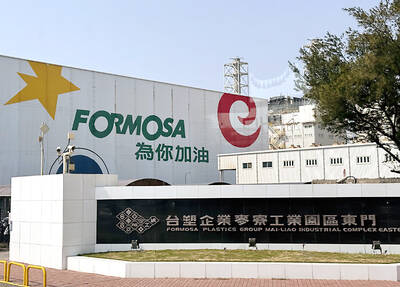Taiwanese game makers reported double-digit revenue growth last year, thanks to an increased variety of new game titles, follow-up releases on popular sequels and the widespread popularity of gaming as a form of leisure in Taiwan.
However, gaming companies face challenges and uncertainties as competition intensifies, requiring local companies to make even bigger investments to retain or expand their hold on the local market, an official at Gamania Digital Entertainment Co (遊戲橘子), a Taiwanese online game developer and publisher, said yesterday.
“There is a delicate balance that needs to be maintained between investing big dollars on game sequels and licenses and betting on individual game developers’ innovation and creativity,” Gamania chief executive officer William Chen (陳威光) said in an interview.
“We need to manage risk yet at the same time capitalize on surprise out-sized gains before they fall into the competition’s hands, or worse turn into a real threat all by themselves,” he said.
Also, as the two major spheres of online gaming — casual gaming and massive multiplayer online role-playing games (MMORPG) — evolve over time, increased diversification within each group actually blurs the gaming landscape altogether, he said.
The Market Intelligence Center forecast that the Taiwanese gaming industry would rise by a compounded annual growth rate of 9 percent between 2006 and next year.
For this year, the center expects that the local gaming market would reach NT$11.29 billion (US$339.7 million), with 46 percent coming from casual games and 54 percent from MMORPG.
Chen was more optimistic and estimated growth of between 10 percent and 12 percent this year.
With an eye on the current market trend, Gamania, in partnership with Japanese gaming company GONZO Rosso is releasing a new online game nationwide today titled Pandora Saga.
Chen said the company was optimistic the Japan-made MMORPG would be well-received in Taiwan, with its complex three-way war against a mystical medieval backdrop meeting the ever-increasing expectations of local gamers.
Gamania saw revenue growth of 9.8 percent last year to NT$3.48 billion.
Rivals such as Softworld International Entertainment Corp (智冠科技) and ChineseGamer International Corp (中華網龍) posted total sales of NT$6.15 billion and NT$1.43 billion, representing year-over-year growths of 20 to 30 percent.

EXTRATERRITORIAL REACH: China extended its legal jurisdiction to ban some dual-use goods of Chinese origin from being sold to the US, even by third countries Beijing has set out to extend its domestic laws across international borders with a ban on selling some goods to the US that applies to companies both inside and outside China. The new export control rules are China’s first attempt to replicate the extraterritorial reach of US and European sanctions by covering Chinese products or goods with Chinese parts in them. In an announcement this week, China declared it is banning the sale of dual-use items to the US military and also the export to the US of materials such as gallium and germanium. Companies and people overseas would be subject to

Taiwan Semiconductor Manufacturing Co (TSMC, 台積電) founder Morris Chang (張忠謀) yesterday said that Intel Corp would find itself in the same predicament as it did four years ago if its board does not come up with a core business strategy. Chang made the remarks in response to reporters’ questions about the ailing US chipmaker, once an archrival of TSMC, during a news conference in Taipei for the launch of the second volume of his autobiography. Intel unexpectedly announced the immediate retirement of former chief executive officer Pat Gelsinger last week, ending his nearly four-year tenure and ending his attempts to revive the

WORLD DOMINATION: TSMC’s lead over second-placed Samsung has grown as the latter faces increased Chinese competition and the end of clients’ product life cycles Taiwan Semiconductor Manufacturing Co (TSMC, 台積電) retained the No. 1 title in the global pure-play wafer foundry business in the third quarter of this year, seeing its market share growing to 64.9 percent to leave South Korea’s Samsung Electronics Co, the No. 2 supplier, further behind, Taipei-based TrendForce Corp (集邦科技) said in a report. TSMC posted US$23.53 billion in sales in the July-September period, up 13.0 percent from a quarter earlier, which boosted its market share to 64.9 percent, up from 62.3 percent in the second quarter, the report issued on Monday last week showed. TSMC benefited from the debut of flagship

TENSE TIMES: Formosa Plastics sees uncertainty surrounding the incoming Trump administration in the US, geopolitical tensions and China’s faltering economy Formosa Plastics Group (台塑集團), Taiwan’s largest industrial conglomerate, yesterday posted overall revenue of NT$118.61 billion (US$3.66 billion) for last month, marking a 7.2 percent rise from October, but a 2.5 percent fall from one year earlier. The group has mixed views about its business outlook for the current quarter and beyond, as uncertainty builds over the US power transition and geopolitical tensions. Formosa Plastics Corp (台灣塑膠), a vertically integrated supplier of plastic resins and petrochemicals, reported a monthly uptick of 15.3 percent in its revenue to NT$18.15 billion, as Typhoon Kong-rey postponed partial shipments slated for October and last month, it said. The